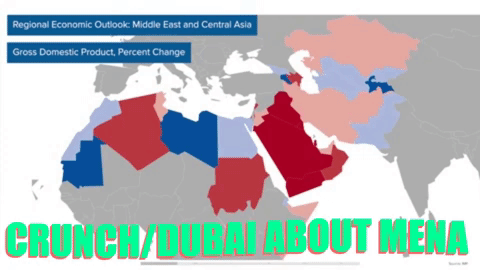Mena startups
In recent years, the startup scene in the MENA region has been thriving, with entrepreneurs and innovators building exciting businesses that are attracting both local and international attention. The Mena region, which stands for Middle East and North Africa, has witnessed a surge in successful exits, as startups either get acquired by larger companies or go public through an initial public offering (IPO). In this article, we will take a retrospective look at some of the most noteworthy startup exits in the MENA region over the past decade, exploring the strategies and stories behind their success.
To provide insights into these successful exits, we have gathered data from global tech acquisition databases, financial reports, and conducted interviews with startup founders themselves. These sources have helped us piece together the puzzle of what it takes to achieve a successful exit in the MENA region.

Market MENA
The MENA region remains a hub of innovation in the technology sphere. In July 2023, the region saw $95 million go to fund 31 different deals in the startup scene, with One Moto’s $40 million lease financing round representing the largest raise. Despite a dip in the dollar figure from the same month last year, the picture shifts slightly when this deal is taken out, with the equity investment increasing to $55 million.
One of the standout success stories in the MENA startup ecosystem is the acquisition of Souq.com by Amazon in 2017. Souq.com an e-commerce platform based in Dubai, UAE, grew rapidly since its founding in 2005. The startup attracted significant attention from investors and consumers alike with its diverse range of products and efficient delivery network. Amazon recognized the potential of Souq.com and acquired it for a reported marking Amazon’s official entry into the Middle East market. This acquisition not only provided a lucrative exit for Souq.com’s founders and investors but also highlighted the attractiveness of the MENA region for global players.

While acquisitions have been a common exit route for MENA startups, there have also been successful IPOs in the region. One such example is the IPO of Aramex, a Dubai-based logistics company, in 2005. Aramex, founded in 1982, started as a small courier company but quickly expanded its operations and became a key player in the global logistics industry. The company’s IPO raised $265 million, providing a successful exit for its founders and giving investors an opportunity to participate in the growth of a prominent MENA startup.
Additionally, these successful startups prioritized scalability and growth from the early stages. They invested in building robust technology infrastructure and expanding their operations to reach a broader customer base. This growth mindset allowed them to establish a strong market presence and attract the attention of larger companies looking to enter or strengthen their position in the MENA region.

Furthermore, these startups focused on building strong relationships with investors and strategic partners. By cultivating these connections, they gained access to resources, expertise, and networks that helped accelerate their growth and increase their chances of a successful exit.
In the highly competitive startup ecosystem, having the right connections can make all the difference.
Looking ahead, the future seems promising for the MENA startup ecosystem. The successes of these startup exits have not only provided financial gains for founders and investors but have also fueled a sense of optimism and motivation among aspiring entrepreneurs. The MENA region offers a unique blend of opportunities and challenges, and its entrepreneurs are rising to the occasion, building businesses that are attracting global attention.
To conclude, successful startup exits in the MENA region have been on the rise over the past decade, thanks to innovative entrepreneurs, supportive investors, and an increasingly favorable business environment. The stories of Souq.com, and Aramex highlight the potential of the MENA startup ecosystem and its ability to create successful businesses. As we move forward, it is crucial to continue supporting and nurturing the region’s entrepreneurs, providing them with the resources and infrastructure they need to thrive. By doing so, we can expect to see even more exciting startup exits from the MENA region in the coming years.
If you’re an aspiring entrepreneur in the MENA region, the time is now to pursue your startup dreams. The opportunities are endless, and with the right combination of innovation, scalability, and strategic partnerships, your startup could be the next success story. So, what are you waiting for? Take the leap and be part of the vibrant startup ecosystem in the MENA region.
